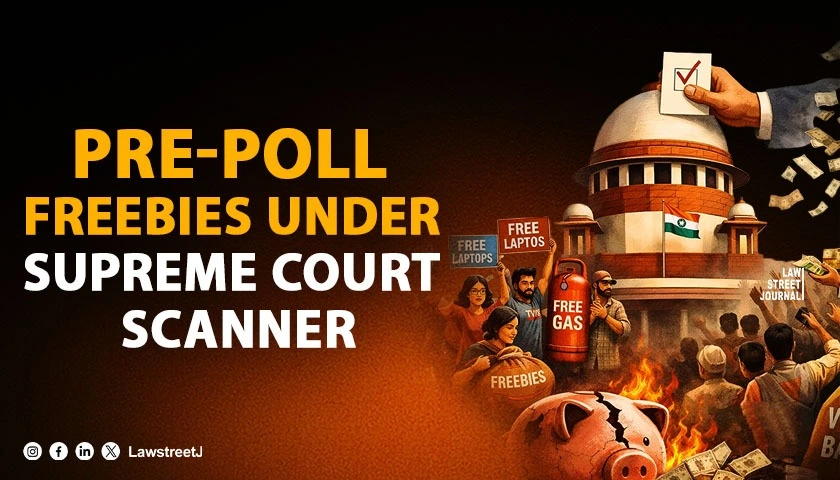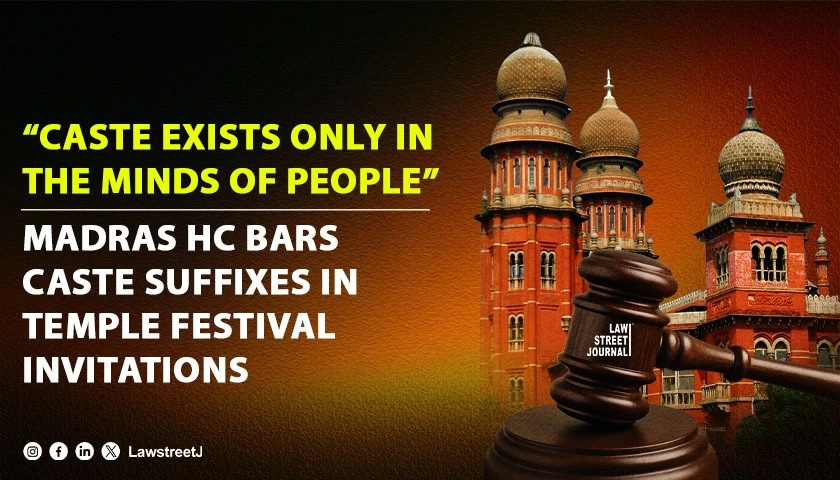Ashwini Kumar Upadhyay, an Advocate and a BJP Leader filed a PIL before the Supreme Court seeking directions to the Central as well as the State Government in order to control black magic, superstitions and forceful religious conversions.
The Petitioner supported his submissions by citing the Sarla Mudgal Case (1995) 3 SCC6 635 in which directions were issued to the Central Government in order to know the viability to enact an Anti-Conversion Law.
He stated how incidents of forceful religious conversions by use of black magic, use of carrot and stick, are reported extensively throughout the country every week.
He also pointed out the fact that more often that not, the victims of these forceful conversions are persons that belong to socially and economically under privileged strata, specifically belonging to the SC-ST.
He submitted that this is against the Principles of Secularism along with Article 14, 21 and 25 of the Constitution, both of which are parts of basic structures of the constitution. Even after this, there have been absolutely no firm efforts by the Government to control these malpractices.
The plea states, "It is necessary to state that Centre is empowered to make special provisions for the benefit of women and children under Article 15(3) and freedom of conscience, free profession, practice & propagation of religion under Article 25 is subject to public order, morality, health and other provisions of Part-III. Moreover, directive principles are affirmative instructions to the Centre to secure social, economic and political Justice; Liberty of thought, , expression, belief, faith and worship; Equality of status and opportunity and to promote among them fraternity, assuring the dignity of individual, l, unity, and integrity. But, Centre has not taken steps to secure high ideals outlined in Preamble and Part-III.
It further states, "Centre-States are obligated under Article 46 to protect SC-ST community from social injustice and other forms of exploitation."
It has also been averred in the plea that Article 25 secures religious freedom that "all persons are equally entitled to freedom of conscience and the right to freely profess, practice, and propagate religion subject to public order, morality and health." Therefore, it can be interpreted how religious conversions pertaining to superstitions, black magic, miracles and hypocrisy are not protected under Article 25.
Along with this, Upadhyay also quoted the relevant provisions of International Law to submit how it is the duty of a state to protect its citizens from coercion affecting their freedom of religion.
He quoted Article 18(2) of International Covenant on Civil-Political Rights which states, "No one shall be subject to coercion which would impair his freedom to have or to adopt a religion or belief of his choice."
Along with this, Article 18(3) states, "Freedom to manifest one's religion or beliefs may subject only to such limitations as are prescribed by law and are necessary to protect public safety, order, health, or morals or the fundamental rights and freedom of others."
It is to be noted, Article 1(2) of the Declaration on Elimination of All Forms of Intolerance and Discrimination based on Religion or Belief states, "No one shall be subject to coercion which would impair his freedom to have a religion or belief of his choice."
In its plea, the Petitioner went on to urge the Apex Court to issue directions to direct the Centre as well as the State Governments to curb superstitions, black magic, religious conversion forcefully by threatening, intimidating, and deceiving, by luring through monetary benefits and gifts along with other such menaces.
He pleaded appointment of a committee to enact a Conversion of Religion Act that will keep a check on abuse of religion in the name of such menaces and on the basis of the directions in the Sarla Mudgal Case.
In the Sarla Mudgal Case, the Apex Court had observed:
"The Government may also consider feasibility of appointing a Committee to enact Conversion of Religion Act, immediately, to check the abuse of religion by any person. The law may provide that every citizen who changes his religion cannot marry another wife unless he divorces his first wife. The provision should be made applicable to every person whether he is a Hindu or a Muslim or a Christian or a Sikh or a Jain or a Budh. Provision may be made for maintenance and succession etc. also to avoid clash of interest after death. This would go a long way to solve the problem and pave the way for a unified civil code."
The Petitioner also pleaded that Law Commission must prepare a report on the same issue within three months concurring to the spirit of the Sarla Mudgal Case. He added requested the Supreme Court that it may use its plenary constitutional powers so as to pass directions to prohibit the conversion by carrot and stick.
He said that the Court is empowered to evolve a principle of liability that guarantees the remedy to enforce Fundamental Rights effectively while serving justice to the aggrieved. (Mohammed Ishaq v. S. Kazam Pasha & Anr., (2009) 12 SCC 748).
Lastly, the plea stated, "It was held that the court was not helpless and the wide powers given to the Court by Article 32, which is fundamental right imposes a constitutional obligation on the Court to forge such new tools, which may be necessary for doing complete justice and enforcing the fundamental rights guaranteed in the Constitution.
The matter is now likely to be listed on April 9, 2021.

![Filed Before Supreme Court Seeking Law to Control Black Magic, Superstitions & Forceful Religious Conversions [READ PIL]](/secure/uploads/2021/04/lj_6674_supreme.jpg)






